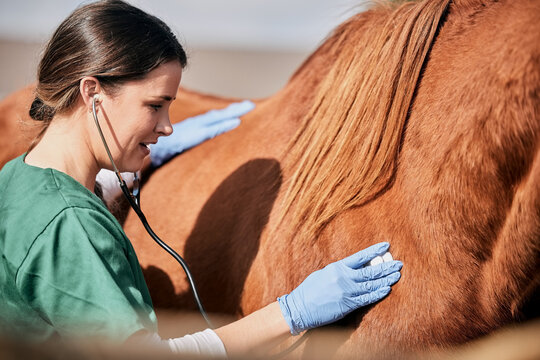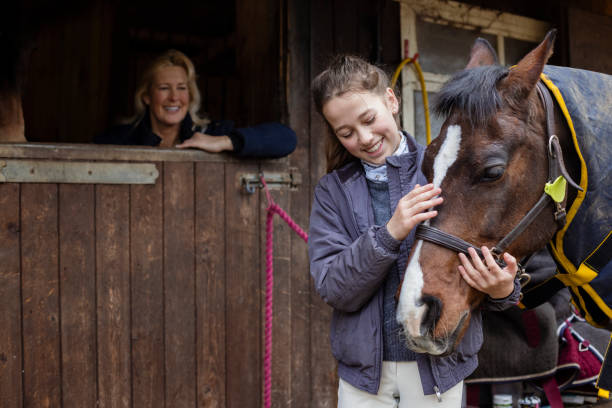For equestrian enthusiasts, the question of what age is senior horse considered is both significant and common. Horses, much like humans, go through various life stages, and understanding when a horse is entering its senior years is crucial for providing the best care possible. Typically, a horse is considered a senior at around 15 to 20 years of age. However, this can vary based on factors such as breed, health, and lifestyle.

Why Knowing Your Horse’s Age Matters
Understanding the age at which a horse becomes a senior is important because it impacts their care and management. Senior horses often require different nutrition, exercise, and health monitoring compared to their younger counterparts. By recognizing when a horse becomes a senior, owners can make informed decisions about their grooming schedule and overall lifestyle.
Physical Signs of Aging in Horses
As horses age, they exhibit certain physical signs. These can include greying of the coat, a swayback, and changes in muscle tone. It’s essential to monitor these changes to ensure the horse remains healthy and comfortable.
Changes in Dental Health
Dental health is a significant concern for senior horses. As they age, their teeth can wear down or develop issues that require attention. Regular dental check-ups are vital to prevent discomfort and ensure proper nutrition.
Joint and Mobility Issues
Senior horses may experience joint stiffness or arthritis. Recognizing these signs early can help manage pain and maintain mobility. Adjusting exercise routines and providing joint supplements can be beneficial.
Nutrition for Senior Horses
Nutrition plays a crucial role in the health of senior horses. They often require diets that are higher in fiber and lower in carbohydrates to maintain a healthy weight and support digestive health. Consulting with a veterinarian or equine nutritionist can help formulate the right diet.
Importance of Hydration
Ensuring that your senior horse stays hydrated is essential, especially during warmer months. Proper hydration supports all bodily functions, and special attention should be given to water intake to prevent dehydration. For more tips on keeping your horse hydrated, visit our article on senior horse hydration in summer.
The Emotional Well-being of Senior Horses
As horses age, their mental and emotional needs may change. Ensuring a stress-free environment and providing companionship can greatly enhance their quality of life. Understanding the emotional needs of your senior horse can prevent issues such as anxiety or depression.
Companionship and Social Needs
Senior horses benefit from social interaction, whether it’s with other horses or human companions. This interaction can help keep their spirits high and provide mental stimulation.
Common Health Concerns for Senior Horses
Senior horses are prone to specific health concerns, including Cushing’s disease, weight loss, and digestive issues. Regular veterinary check-ups are crucial to detect any problems early and provide appropriate treatment.
Preventive Health Care
Preventive care, such as vaccinations and regular deworming, is essential for maintaining a senior horse’s health. These measures can prevent common ailments and help extend their lifespan.
Caring for Your Senior Horse
Caring for a senior horse involves a combination of proper nutrition, regular veterinary care, and attention to their emotional and social needs. By understanding how to care for your senior horse, owners can ensure that their horses enjoy their golden years comfortably and happily.
Exercise and Activity
While senior horses may not be as active as they once were, maintaining a level of activity is important for their overall health. Gentle exercise can help keep joints flexible and muscles strong.
Planning for the Future
As a horse owner, planning for the later years of your horse’s life is important. This includes considering their living arrangements and any potential health care needs. Resources such as transportation tips can help in making informed decisions about relocating your senior horse if necessary.
Understanding the Lifespan of Horses
Knowing the typical lifespan of horses and what to expect as they age can help owners prepare for the changes that come with having a senior horse. Generally, horses live to be 25-30 years old, but this can vary based on individual circumstances. For more information, check out our detailed article on how long senior horses live.
Conclusion
Understanding what age is senior horse considered is essential for providing the best care for your equine friend. By recognizing the signs of aging and adapting care accordingly, you can ensure that your horse enjoys a healthy and fulfilling life in their senior years.

FAQs
1. Can senior horses still participate in shows?
Yes, many senior horses continue to participate in shows. However, it’s important to monitor their health and adjust their workload as necessary.
2. How do I know if my horse is experiencing joint pain?
Look for signs such as stiffness, reluctance to move, or changes in gait. Consulting with a veterinarian can help diagnose and manage joint pain.
3. What should I do if my senior horse is losing weight?
If your senior horse is losing weight, consult with a veterinarian to rule out any health issues and adjust their diet to ensure proper nutrition.
This article contains affiliate links. We may earn a commission at no extra cost to you.
